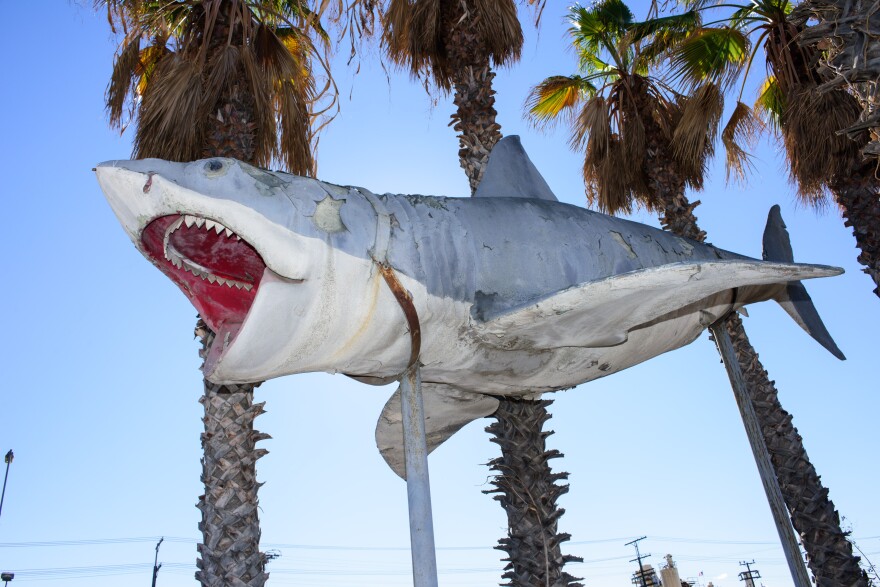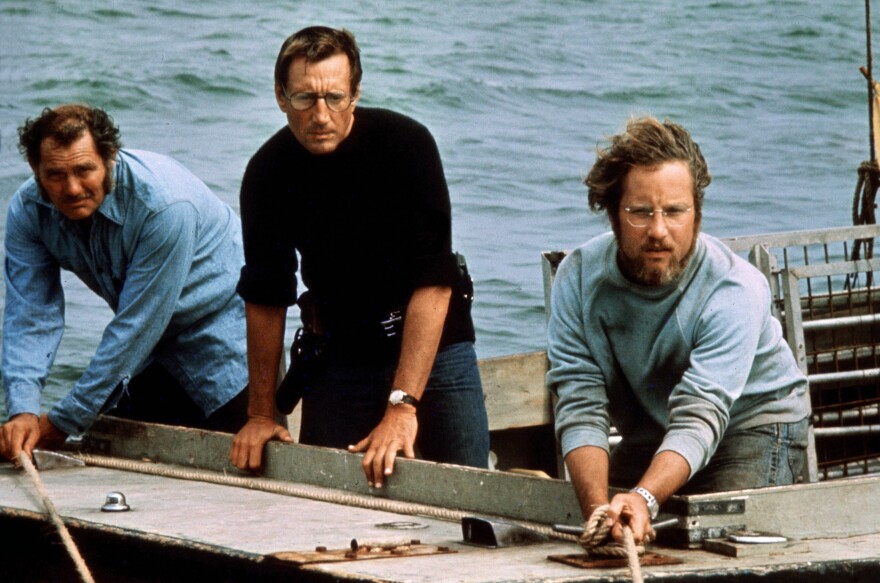Many people already know that Jaws is about a great white shark feeding off vacationers at a beach resort. But much of the commentary on this 50th anniversary seems to focus on the movie’s huge box office numbers and production problems, while avoiding the core of the film itself.
That the mechanical shark didn’t always work may have been good for the film, because we see less of it. A 2025 digital shark would get more screen time, which would not make the film better. Lurid special effects make for lurid publicity, but, the less frequent sightings of the shark mean that you never get used to the sight of the shark, so those few eruptions pack a wallop. Instead of a constant stream of ever less scary moments, Jaws simmers with anxiety. You worry your way through the film – and good filmmakers know that what’s in your head is far more threatening than anything they can put on screen.


Some of the comments on the re-release of Jaws suggests that the picture isn’t about anything other than fear, and that’s not true. Jaws is not an empty-headed film. At the time Jaws came out, the famed critic at The New Yorker magazine, Pauline Kael, talked about the film’s wary picture of masculinity. The big macho tough guy, called Quint (Robert Shaw) is rough, tough and full of disdain for the wimpy types on the island of Amity’s town council, as well as for everyone else in town, including the tourists.
Quint is a shark hunter with a shop full of shark jaws hanging from the rafters. For the big hunt, he’s joined by Police Chief Brody (Roy Scheider), a New York transplant afraid of water, and Hooper (Richard Dreyfus), a scientist specializing in sharks.
Hooper is thoughtful and mild-mannered – the opposite of Quint. In a wonderful moment, Quint guzzles a beer and crushes the can in his fist – which was harder to do in the ‘70s when the aluminum beer cans were thicker than now. But to counter Quint’s roaring and bragging, Hooper looks back at Quint and mocks him by crushing a Styrofoam coffee cup. In part, Jaws boils down to who’s going to save us from the shark – the lion who roars or the little guy with glasses and a notebook.

It’s hardly subtle, but Jaws also dances with political questions that are entirely up to date for us. The mayor denies that there’s a dangerous shark in the neighborhood because it will drive the tourists away – it’s a money question. And he gets the town doctor to support the lie that the first shark victim died in a boating accident. Only when Chief Brody insists on honesty can the public be made safe.
Jaws changed the history of American movies. Monster films had usually been low-budget B-movies that earned modest returns, but Jaws showed that an upscale monster picture could rake in huge sums. Jaws follows the story patterns of cheap monster films from the 1950s closely, but there’s a lot more money spent on actors, locations and its level of polish. It paid off.
Jaws made the money people believe they’d do better to aim for a few blockbusters instead of the old model of producing a slate of films for less spectacular profit. So, if you prefer films with rich characters, complex stories and fewer explosions, Jaws – and then the first Star Wars – are the villains. No matter how much fun they may be.
To find a theater near you to enjoy Jaws on the big screen, .
Get top headlines and ������٠reporting directly to your mailbox each week when you subscribe to In The NoCo.



